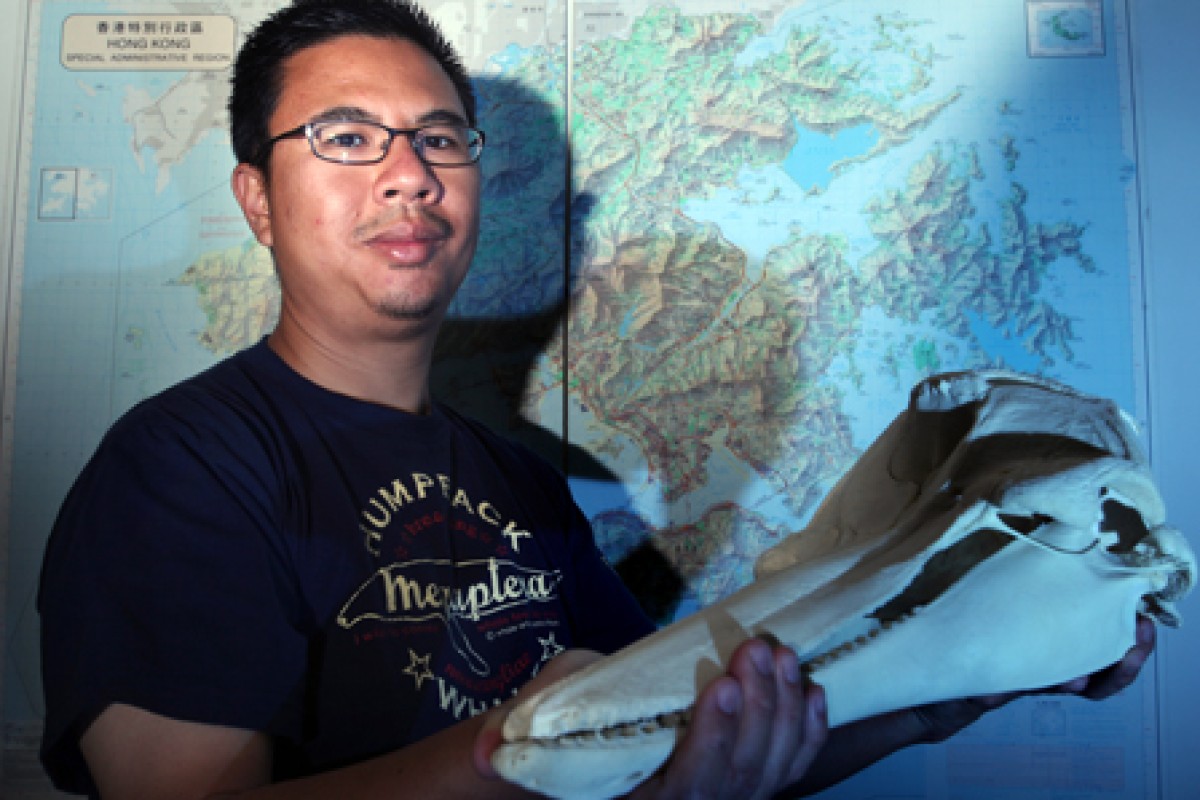
Now, as a marine biologist, he knows better.
"People tend to have a wrong perception of dolphins, because what they learn is from dolphins in captivity," he says.
"People think they like to eat certain kinds of fish or like to be trained by trainers, and that they're happy in an aquarium. They think dolphins can do tricks in the wild, too. But after studying dolphins in the wild for so many years, I know that's not the case."
Hung, who has been involved in dolphin research since 1997, set up the Hong Kong Dolphin Conservation Society in 2003 to raise awareness of protecting whales, dolphins and porpoises - collectively known as cetaceans.
"The captivity issue is somewhat controversial and the government tries to be neutral about it," says Hung, the society's chairman. "It's difficult for them to side with either Ocean Park or us. But it's a global issue and an important conservation issue. We feel, with our society, we can do a lot more to raise awareness about things that we can't do with the government."
Public education is the most crucial part of his conservation work. "Educating the public and getting their support is extremely important in helping the dolphins. Without their involvement and recognition, it's hard to pressure the government to do a better job of dolphin conservation."
Even Hung's mother once asked him about his problem with Ocean Park. "I gave her two tickets to The Cove and afterwards she understood."
The Cove is a documentary that exposes the systematic slaughter of dolphins in Taiji, Japan. The star of the film, Ric O'Barry, raised a banner at the Oscars last year that read "Text DOLPHIN to 44144", which would send recipients a text message on dolphin captivity. O'Barry has a reputation for extreme measures - he paraded round the International Whaling Commission office with a television strapped to his body showing the slaughter of whales.
Admittedly, Hung is not a big fan of O'Barry or his methods. "He's a little self-interested or self-involved, but I like the way he presented [The Cove] and raised awareness - and that's the most important thing."
Hung is not entirely against the captivity of animals. He believes, however, that captivity should serve a purpose greater than commercial gain. It should be educational and should simulate an environment that resembles the wild.
"I've been to the Monterey Bay Aquarium [in California] - it's an excellent educational facility," he says. "People can learn a lot about marine ecosystems there.
"[Marine scientists] think very highly of the Monterey Bay Aquarium. I think Ocean Park has the resources and competitive edge to be something like that."
Hung holds no personal grudge against Ocean Park. He just wishes it would agree to two of his requests: "Don't capture more wild animals. And don't operate a circus-style dolphin show to mislead people about their behaviour."
